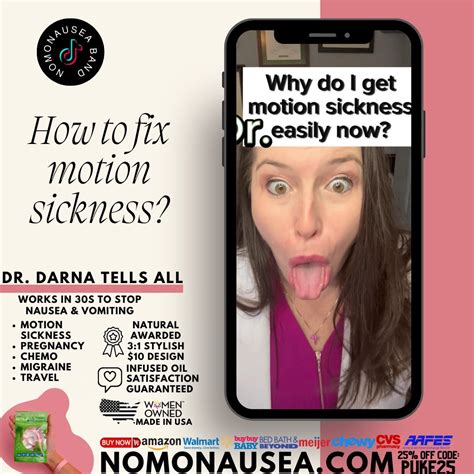Beat Travel Sickness

Introduction to Travel Sickness
Travel sickness, also known as motion sickness, is a common problem that affects many people when they travel by car, boat, plane, or train. It is caused by a conflict between what the body feels and what the eyes see, which can lead to a range of symptoms including dizziness, nausea, vomiting, and headaches. In this article, we will explore the causes of travel sickness, its symptoms, and most importantly, provide tips and advice on how to prevent and treat it.
Causes of Travel Sickness
Travel sickness is caused by a combination of factors, including:
- Conflicting signals: When the body receives conflicting signals from the senses, such as the eyes, ears, and sensory nerves, it can cause confusion and lead to travel sickness.
- Motion: The motion of the vehicle can cause the body to feel like it is being pulled in different directions, leading to travel sickness.
- Inner ear problems: The inner ear plays a crucial role in balance and equilibrium, and problems with the inner ear can contribute to travel sickness.
- Hormonal changes: Hormonal changes, such as those experienced during pregnancy, can affect the body’s balance and equilibrium, leading to travel sickness.
Symptoms of Travel Sickness
The symptoms of travel sickness can vary from person to person, but common symptoms include:
- Dizziness: Feeling lightheaded or dizzy, which can make it difficult to stand or walk.
- Nausea: Feeling queasy or sick to the stomach, which can lead to vomiting.
- Vomiting: Vomiting is a common symptom of travel sickness, and can be triggered by the motion of the vehicle.
- Headaches: Travel sickness can cause headaches, which can range from mild to severe.
Prevention and Treatment
While travel sickness can be unpleasant, there are several ways to prevent and treat it. Here are some tips:
- Choose a seat in the front of the vehicle: Sitting in the front of the vehicle can help to reduce the symptoms of travel sickness.
- Keep your eyes on the horizon: Looking at the horizon can help to reduce the conflicting signals that the body receives, which can help to prevent travel sickness.
- Avoid reading or screens: Reading or looking at screens can make travel sickness worse, as it can cause the body to receive conflicting signals.
- Take breaks: Taking regular breaks can help to reduce the symptoms of travel sickness, and can give the body a chance to recover.
- Try ginger or acupressure: Ginger and acupressure have been shown to be effective in reducing the symptoms of travel sickness.
Medications and Remedies
There are several medications and remedies available that can help to prevent and treat travel sickness. These include:
| Medication | Description |
|---|---|
| Dimenhydrinate | An antihistamine that can help to reduce the symptoms of travel sickness. |
| Meclizine | An antihistamine that can help to reduce the symptoms of travel sickness. |
| Scopolamine | A patch that can be worn behind the ear to help prevent travel sickness. |
🚨 Note: It's always best to consult with a doctor before taking any medication, especially if you have any underlying medical conditions or are pregnant or breastfeeding.
Alternative Remedies
In addition to medications, there are several alternative remedies that can help to prevent and treat travel sickness. These include:
- Aromatherapy: Certain essential oils, such as peppermint and lavender, can help to reduce the symptoms of travel sickness.
- Acupuncture: Acupuncture has been shown to be effective in reducing the symptoms of travel sickness.
- Yoga and meditation: Practicing yoga and meditation can help to reduce stress and anxiety, which can contribute to travel sickness.
In summary, travel sickness is a common problem that can be prevented and treated with a combination of medications, alternative remedies, and lifestyle changes. By understanding the causes and symptoms of travel sickness, and taking steps to prevent and treat it, you can reduce the risk of experiencing travel sickness and make your travels more enjoyable.
What is the best way to prevent travel sickness?
+
The best way to prevent travel sickness is to choose a seat in the front of the vehicle, keep your eyes on the horizon, and avoid reading or screens. You can also try taking breaks, trying ginger or acupressure, and taking medications or alternative remedies as needed.
What are the most common symptoms of travel sickness?
+
The most common symptoms of travel sickness include dizziness, nausea, vomiting, and headaches. These symptoms can range from mild to severe and can be triggered by the motion of the vehicle.
Can travel sickness be treated with medications?
+
Yes, travel sickness can be treated with medications such as dimenhydrinate, meclizine, and scopolamine. However, it’s always best to consult with a doctor before taking any medication, especially if you have any underlying medical conditions or are pregnant or breastfeeding.